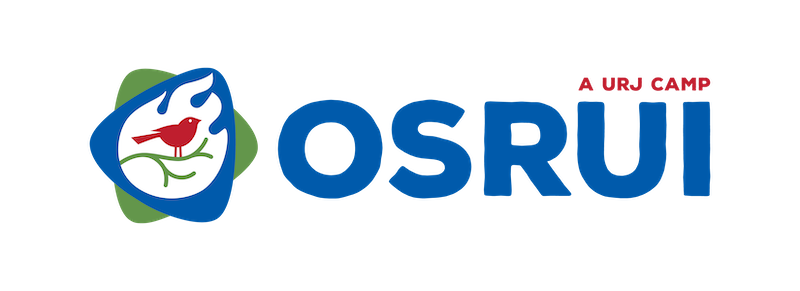Before 10 am today I sloshed through the mud to my unit of tent-living teens, led a morning service, watched a 13-year old camper feel her strength lifting the Torah after it was read, sat in the rain for breakfast, picked up trash, led a program on Jewish environmental responsibility, comforted a homesick camper, and rolled up some tent flaps for our experiential learning to happen in the tents ‘til the rain ended. I was wet, tired and energized. (And, yes, I next went to find a good cup of coffee.)
As I walked up the hill after the learning program, I spoke with a counselor who asked if there was competition for my faculty slot in Moshavah, one of the two tent units at Olin-Sang-Ruby Union Institute, our Reform Movement’s incredible camp here in Oconomowoc, Wisconsin. In truth, I don’t know. But I did explain that there is a certain subset of rabbis, cantors and Jewish educators who both love the outdoors, are willing to camp out and canoe/hike/bike/rock climb, and are up for all outdoor meals, more mud than usual and a willingness to paddle a canoe with 13-year olds who may or may not paddle too.
For me, this is the perfect scenario to mesh with my passion for experiential outdoor Jewish education. Don’t get me wrong, it’s not easy, but it fuels me in a way that allows me to teach and learn, surrounded by counselors who love campers and camping, counselors who masterfully slush through the mud and rain and skillfully lead teens on camping outings (tiyulim in Hebrew), counselors who keep campers smiling, singing and cheering, counselors who are up for taking the lesson I’ve mapped out in my office at NSCI on the phone with my faculty partner, Forrest Yesnes, Director of Youth Education and Programming at Shir Tikvah Congregation in Minneapolis, and make it work sitting on the floor of their tents with headlamps on.
The lesson this morning? We introduced our campers to the basic tension of Jewish environmental responsibility. At the beginning of Torah we are told that the earth is ours to have dominion over, to do as we like with it, and, at the same we have a responsibility to work and protect its resources. From there we asked the campers to make a matching of sorts between the Leave No Trace principles of ethical environmental enjoyment and usage and Jewish teachings relating to the natural world, the goal being an awareness of environmental responsibility and a connection to our Jewish teaching, deepening the meaning and seeing Jewish relevance.
The Leave No Trace principles are: Plan ahead & prepare. Travel & camp on durable surfaces. Dispose of waste properly. Leave what you find. Minimize campfire impacts. Respect wildlife. Be considerate of other visitors. All are about minimizing our impact.
Judaism has a similar message. The Jewish texts our unit explored this morning taught that we should not cut down trees unnecessarily or otherwise destroy God’s creations. We should be open to awe and gratitude amidst those creations, and act with awareness of the impact of what we leave behind. The expectation set is one of responsibility for sure, and more. The backdrop is an important teaching for my campers and counselors, and for us all, a teaching that “…one needs access to the enjoyment of the beauty of nature, such as the contemplation of flower-decorated meadows, majestic mountains, flowing rivers…For all these are essential to [our] spiritual development.”
Indeed I know this, but camp reminds me of this teaching each time I am here. You don’t have to be at camp or in a far-off place to enjoy the beauty of nature. Look out your window, sit in a friend’s garden, take a walk by the lake, set out on a forest preserve trail, go to the botanic gardens, or… Open yourself to the natural world, and, step back with gratitude – even if you are sloshing through mud. Shabbat shalom!
This blog post was written by Moshavah segel member Rabbi Lisa Greene of North Shore Congregation Israel in Glencoe, IL for her weekly email congregation email found at Rabbi Green’s Insights from Camp







